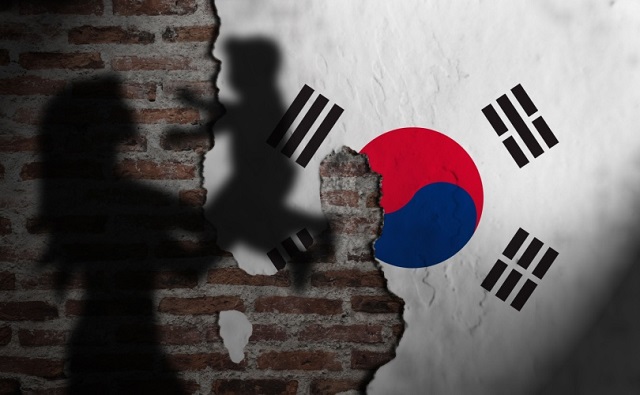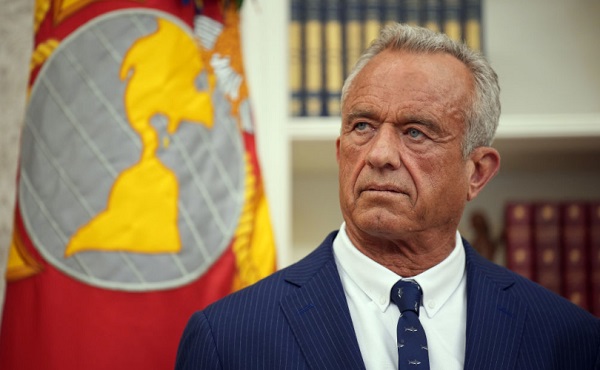Health
South Korean president declares low birth rate a ‘national emergency,’ plans new ministry to address it

From LifeSiteNews
President Yoon Suk Yeol announced that he would ask for the parliament’s support to establish a new Ministry of Low Birth Rate Counter Planning after the country reached a new low with an average number of babies per woman of 0.72 in 2023.
South Korea’s president has declared the country’s low birth rate a “national emergency” and announced a new government ministry to address the problem.
In a televised press conference on May 9, President Yoon Suk Yeol said, “We will mobilize all of the nation’s capabilities to overcome the low birth rate, which can be considered a national emergency.”
He announced he would ask for the parliament’s support to establish a new “Ministry of Low Birth Rate Counter Planning.”
South Korea has had the lowest fertility rate in the world for years, and the average number of babies per woman dropped to a new low of 0.72 in 2023, down from 0.78 the previous year.
Despite the government’s efforts to increase the birth rate by spending over $200 billion on initiatives meant to encourage larger families, including infertility treatment, cash subsidies, and childcare services, the country’s birth rate declined for the fourth year in a row in 2023.
A Korean Construction corporation made headlines this year for offering employees $75,000 for each baby they have. “If Korea’s birth rate remains low, the country will face extinction,” Lee Joong-keun, chairman of the Booyoung Group, warned.
READ: New ‘Birthgap’ film shows how explosion in childlessness is driving population collapse
According to YouTuber Stephan Park, who grew up in South Korea and runs the YouTube channel Asian Boss, Korean men face the additional problem of being expected to own a house when they marry, which is very difficult under the country’s current economic conditions.
“There are all the societal pressures that if you get married, guys are the ones that are supposed to buy the house, to have the house ready, which is impossible to have if you are a 30-year-old guy … with the average house prices you’ll never be able to afford one in your lifetime,” Park explained.
“So that’s the most common thing we hear: ‘I cannot afford to get married,’” he added.
According to some projections, South Korea’s and multiple other Western and Asian populations are expected to be cut in half by the year 2100 if the current trends continue.
armed forces
Why Do Some Armed Forces Suffer More Suicides Than Others?

Any single suicide is an unspeakable tragedy. But public health officials should be especially alarmed when the numbers of suicides among a particular population spike. Between 2019 and 2023, the suicide rate across Canada fell from 12.3 per 100,000 to 9.5 per 100,000. U.S. numbers aren’t that different (although they’re heading in the other direction).
Holding public officials and institutions accountable using data-driven investigative journalism.
Against this context, the suicide rate among active Canadian military personnel is truly alarming. Data included in a 2021 Report on Suicide Mortality in the Canadian Armed Forces (CAF) showed that the three year moving average annual rate for suicides in all services of the CAF was 23.38 per 100,000 – around twice the national rate. Which, of course, is not to ignore the equally shocking suicide rates among military veterans.
This isn’t specific to Canada. All modern military communities have to worry about numbers like those. Officials in the Israel Defense Force – now hopefully emerging from their longest and, by some measures, costliest war ever – are struggling to address their own suicide crisis. But there’s a significant difference that’s probably worth exploring.
Through 2024, 21 active duty IDF soldiers took their own lives. This dark number has justifiably inspired a great deal of soul searching and, naturally (it being Israel), finger pointing. But the real surprise here is how low that number is.
It’s reasonable to estimate that there were 170,000 active duty soldiers in the IDF during 2024 and another 300,000 active reservists. If you count all of those together, the actual suicide rate is just 4.5 per 100,000 – which is less than half of the typical civilian suicide rate in Western countries!
Tragic. But hardly an epidemic. Those soldiers have all lost friends and faced battlefield conditions that I, for one, find impossible to even comprehend. And those 300,000 reservists? They’ve been torn away from their families, businesses, and normal lives for many months. Many have suffered devastating financial, social, and marital pressures. And still: we’re losing them at lower rates than most civilian populations!
Is there any lesson here that could help inform CAF policy?
One obvious difference is sense of purpose: IDF members are fighting for the very existence of their people. They all saw and felt the horrors of the October 7 massacres and know that there are countless thousands of adversaries who would be happy do it again in a heartbeat¹. And having a general population that overwhelmingly supports their mission can only help that sense.
But there are some other factors that could be worth noting:
- The IDF is unusual in that it subjects all potential conscripts to mandatory psychological screening – resulting in many exemptions.
- Small, stable units are intentionally kept together for years. In fact, units are often formed from groups who have known each other since their early school years. This cohesion also helps with post-service integration.
- Every IDF battalion has a dedicated officer trained in brief interventions and utilization rates are high.
Is there anything here that CAF officials could learn from?
Health
RFK Jr. urges global health authorities to remove mercury from all vaccines

From LifeSiteNews
Health and Human Services (HHS) Secretary Robert F. Kennedy Jr. is urging health leaders across the planet to stop including mercury in vaccinations.
“Now that America has removed mercury from all vaccines, I call on every global health authority to do the same — to ensure that no child, anywhere in the world, is ever exposed to this deadly neurotoxin again,” he said.
Kennedy’s comments came in a video he recorded for the Minamata Convention on Mercury. The event is an international gathering aimed at preventing human contact with mercury, which, according to the World Health Organization (WHO), is one of the top 10 chemicals of major public health concern. The treaty, backed by the United Nations (UN), was first signed in 2013 by over 140 countries.
Kennedy noted that while the group’s goal is no doubt praiseworthy, it has not gone far enough in its efforts.
“Article 4 of the convention calls on parties to cut mercury use by phasing out listed, mercury-added products. But in 2010, as the treaty took shape, negotiators made a major exception. Thimerosal-containing vaccines were carved out of the regulation,” he recalled.
“The same treaty that began to phase out mercury in lamps and cosmetics chose to leave it in products injected into babies, pregnant women, and the most vulnerable among us,” he noted. “We have to ask: Why? Why do we hold a double standard for mercury? Why call it dangerous in batteries, in over-the-counter medications, and make-up but acceptable in vaccines and dental fillings?”
This past summer, Kennedy’s Advisory Committee for Immunization Practices launched a study to research the vaccine schedule for children. Among other recommendations, the committee advised the removal of thimerosal, a neurotoxic, mercury-containing preservative that had been used in flu shots.
Kennedy noted in his video message that “thimerosal’s own label requires it to be treated as a hazardous material and warns against ingestion,” adding that “there is not a single study that proves it’s safe. That’s why in July of this year the United States closed the final chapter on the use of thimerosal as a vaccine preservative, something that should have happened years ago.”
Kennedy further explained that thimerosal is “a potent neurotoxin, a mutagen, a carcinogen, and an endocrine disrupter” while noting that “safe alternatives” already exist.
“Manufacturers have confirmed that they can produce mercury-free, single dose vaccines without interrupting supply. There is no excuse for inaction or holding stubbornly to the status quo,” he exclaimed. “Now that America has removed mercury from all vaccines, I call on every global health authority and every party to this convention to do the same.”
“Let’s honor and protect humanity, and our children, and creation from mercury,” he concluded.
The Minamata Convention on Mercury went into effect in August 2017. It was initially approved by the Intergovernmental Negotiating Committee in Geneva, Switzerland, in January 2013. It was adopted in October 2013 at a Diplomatic Conference in Kumamoto, Japan. Per its website, it is named “after the bay in Japan where, in the mid-20th century, mercury-tainted industrial wastewater poisoned thousands of people, leading to severe health damage that became known as the ‘Minamata disease.’”
-

 armed forces2 days ago
armed forces2 days agoIt’s time for Canada to remember, the heroes of Kapyong
-

 Business2 days ago
Business2 days agoCarney’s Floor-Crossing Campaign. A Media-Staged Bid for Majority Rule That Erodes Democracy While Beijing Hovers
-

 Business1 day ago
Business1 day agoLiberals refuse to disclose the amount of taxpayer dollars headed to LGBT projects in foreign countries
-

 Daily Caller22 hours ago
Daily Caller22 hours agoUS Nuclear Bomber Fleet Shares Fence With Trailer Park Linked To Chinese Intel-Tied Fraudster
-

 Digital ID1 day ago
Digital ID1 day agoCanada moves forward with digital identification for federal benefits seekers
-

 Alberta1 day ago
Alberta1 day agoSchool defunding petition in Alberta is a warning to parents
-

 Agriculture2 days ago
Agriculture2 days agoBovaer Backlash Update: Danish Farmers Get Green Light to Opt Out as UK Arla Trial Abruptly Ends!
-

 espionage22 hours ago
espionage22 hours agoChinese-Owned Trailer Park Beside U.S. Stealth Bomber Base Linked to Alleged Vancouver Repression Case










